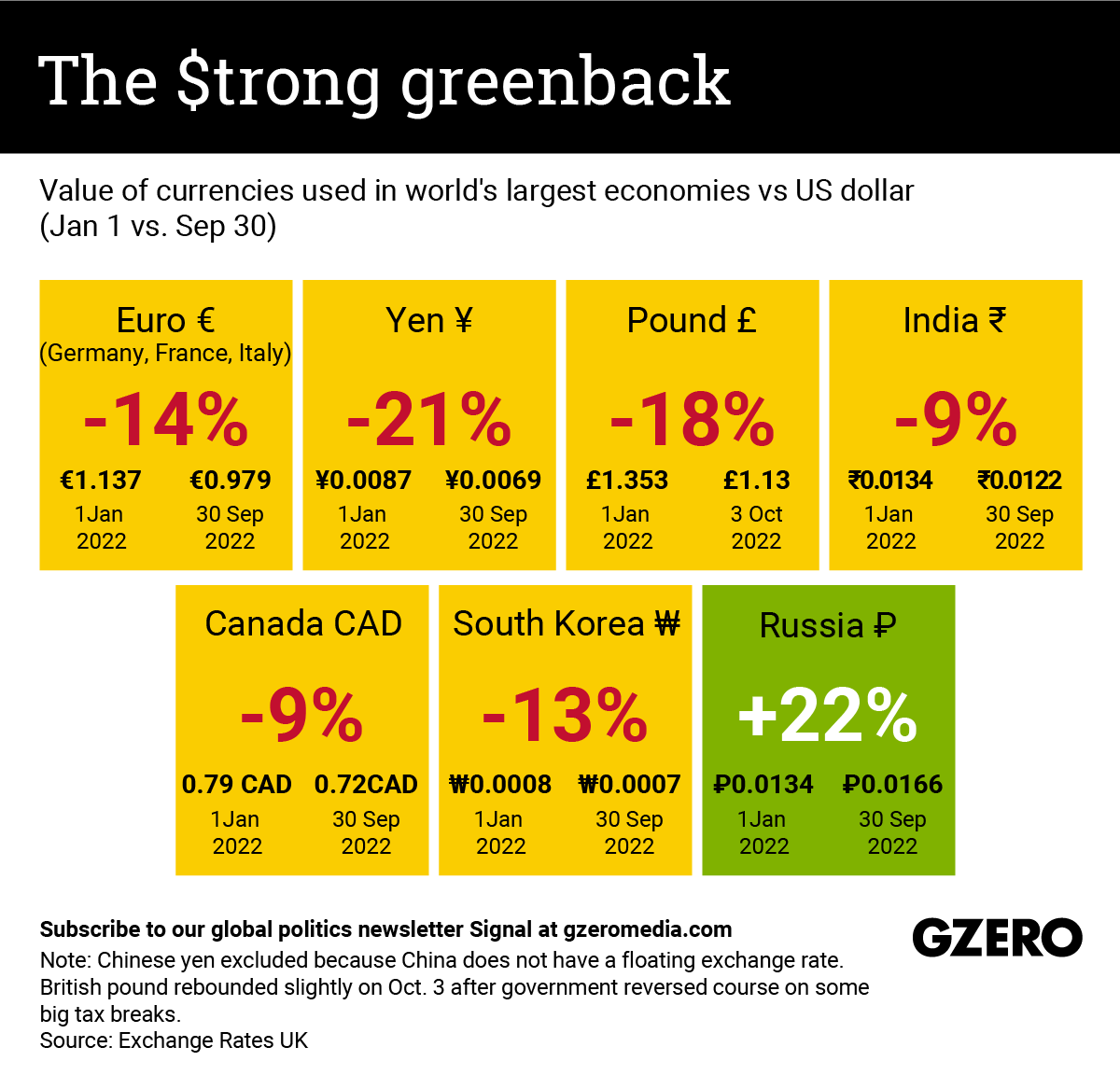October 03, 2022
Developed and emerging economies alike have seen the value of their currencies plummet in recent months due to the economic reverberations of the ongoing war in Ukraine. Food and fuel shortages have put upward pressure on prices, and inflation has soared to record highs in some places. While inflationary pressures are surely being felt in the US, the greenback has reached a two-decade high compared to other major currencies. This is in part because the US Federal Reserve’s measures to curb inflation have boosted investor confidence. However, a strong US dollar can have painful consequences for other states, particularly import-reliant ones, because most global commodities are priced in US dollars. We take a look at the value of currencies used in the world’s largest economies compared to the US dollar before and after Russia invaded Ukraine.
More For You
Tune in on Saturday, February 14th at 12pm ET/6pm CET for the live premiere of our Global Stage from the 2026 Munich Security Conference, where our panel of experts takes aim at the latest global security challenges.
Most Popular
- YouTube
In this Quick Take, Ian Bremmer weighs in on the politicization of the Olympics after comments by Team USA freestyle skier Hunter Hess sparked backlash about patriotism and national representation.
British Prime Minister Keir Starmer delivers a speech at Horntye Park Sports Complex in St Leonards, Britain, February 05, 2026.
Peter Nicholls/Pool via REUTERS
In July 2024, Keir Starmer won the United Kingdom’s election in a landslide. It has been downhill ever since, with Starmer’s premiership sullied by economic stagnation, intraparty fighting, and a lack of vision for the country.
© 2025 GZERO Media. All Rights Reserved | A Eurasia Group media company.
